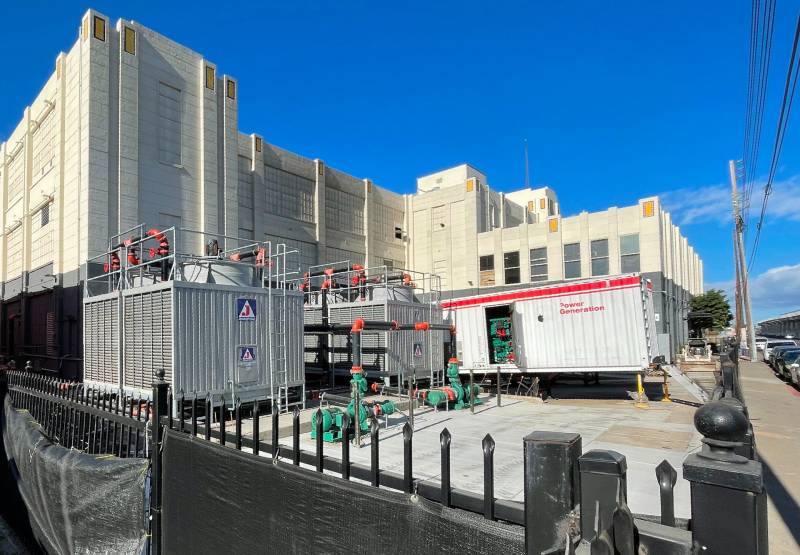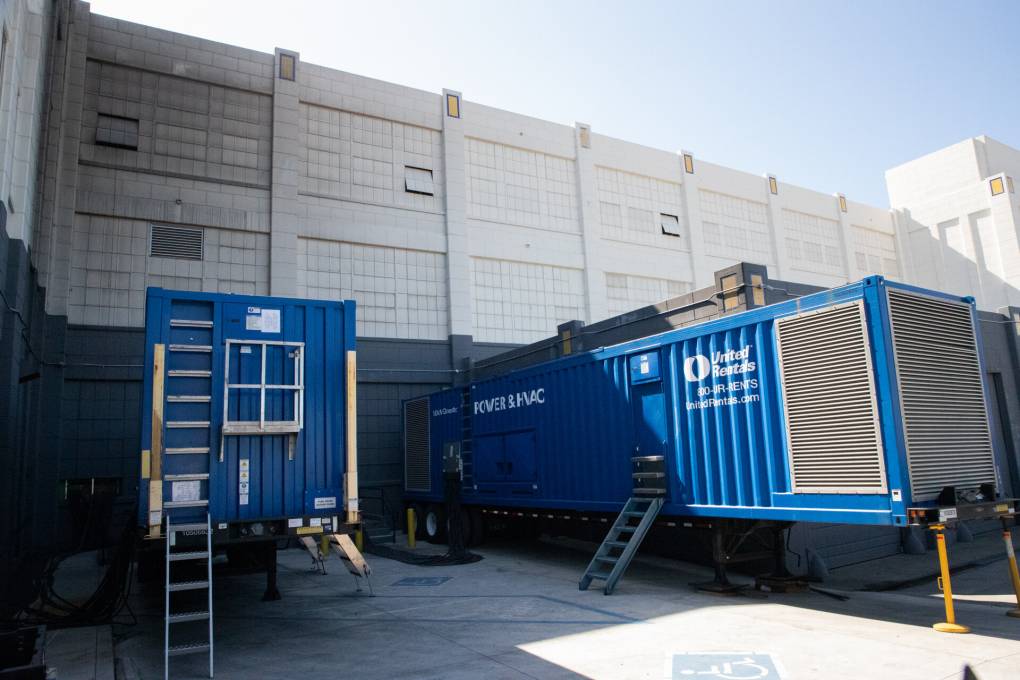The owners of a massive East Oakland cannabis facility are facing the latest in a series of enforcement actions intended to halt the use of pollution-spewing diesel generators to provide power to the complex.
Residents in one of the buildings owned by Denver-based Green Sage teamed with a pair of Oakland environmental groups to use Proposition 65, the state's landmark toxics enforcement law, to get the semi-trailer-sized generators shut down.
The move comes nearly two years after Green Sage began relying on diesel generators to power its two big San Leandro Street buildings — and after a long series of thus far unsuccessful attempts by city agencies and regional air regulators to stop the firm's unpermitted use of the heavily polluting machines.
The Oakland-based Center for Environmental Health and the recently formed Environmental Democracy Project, along with residents of a building where the generators began running in July 2020, filed a Proposition 65 notice of violation on Monday against Denver-based cannabis landlord Green Sage.


